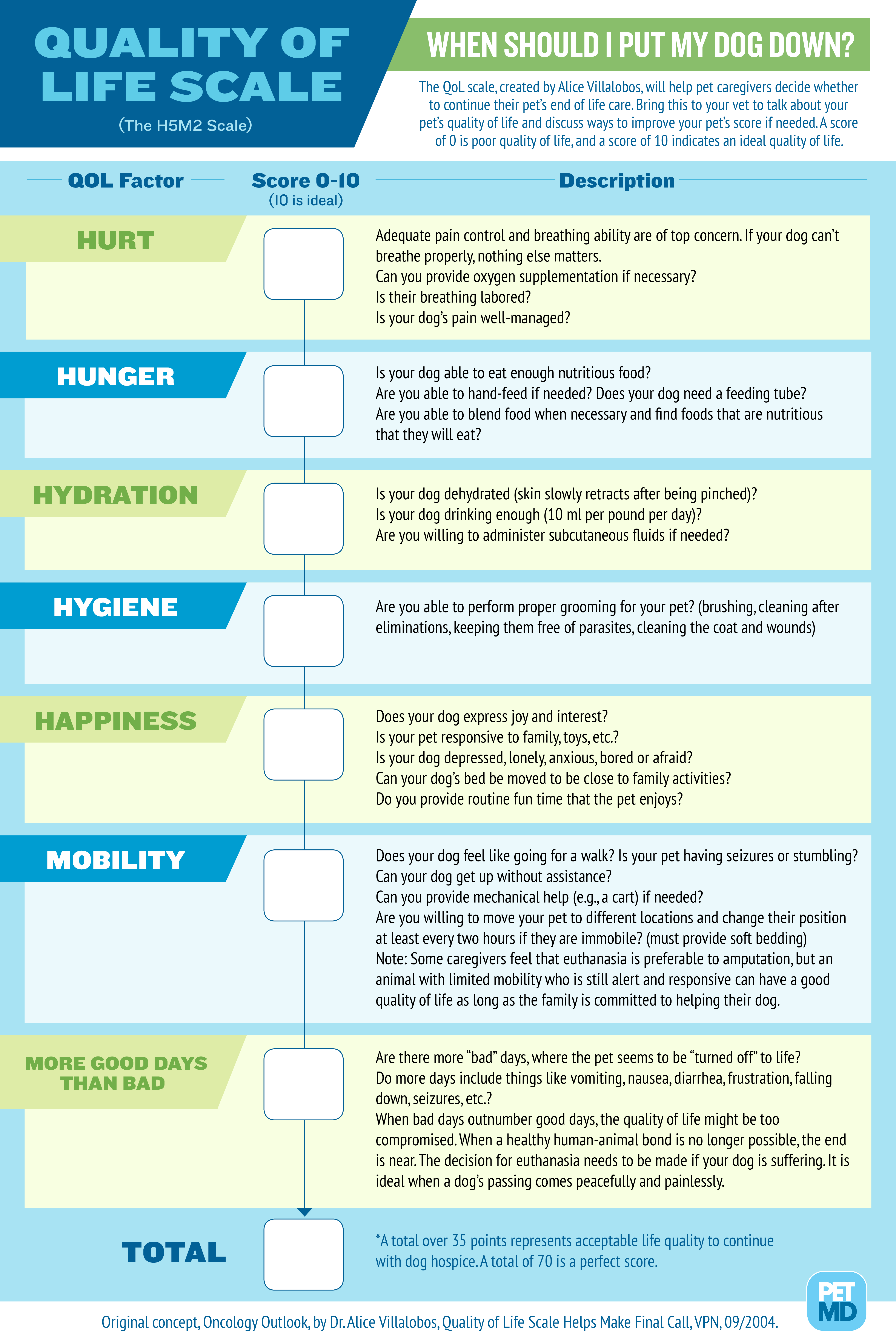Signs of a Dog Dying of Congestive Heart Failure (CHF)
Congestive heart failure (CHF) is when the heart isn’t able to pump blood adequately throughout the body. This results in blood backing up into the lungs and fluid accumulating in the body cavities, which constricts the heart and lungs and prevents sufficient oxygen flow throughout the body.
In most cases of CHF, the issue is not reversible. Here are some of the signs that your dog might be nearing a stage where they need hospice care or you would consider euthanasia.
What Are the Signs of a Dog Dying of Congestive Heart Failure?
There are several stages of congestive heart failure:
- Stage A: The dog is high-risk for CHF, but has no symptoms and no changes to the heart.
- Stage B1: The dog has a heart murmur but no other signs.
- Stage B2: The dog has a heart murmur in addition to structural changes to the heart, but no clinical signs.
- Stage C: The dog has a heart murmur, structural changes to the heart, and clinical signs associated with CHF. These dogs are typically treated.
- Stage D: The dog has CHF and is not responding to standard therapies. The dog will require special treatment strategies.
The clinical signs for CHF are similar once a dog reaches Stage C and D. These clinical signs that a dog is dying of congestive heart failure are:
- Coughing
- Constant panting
- Issues breathing while indoors
- Rapid breathing, especially at rest
- Reluctance or refusal to exercise
- Easily tired after walking and playing
- Blue-tinged gums
- Distended abdomen
- Coughing up blood
- Collapse
If you see these signs of late-stage CHF, it does not mean you must immediately consider euthanasia. A pet’s symptoms can resolve or be managed at a variety of stages.
For example, cough, trouble breathing, and rapid breathing may be treated with bronchodilators, antibiotics, corticosteroids, cough suppressants, environmental modification (air purifiers), and even weight loss.
Monitoring Your Dog’s Quality of Life With Late-Stage CHF
As CHF progresses into the hospice/palliative care stages (starting at Stage C), your veterinarian will focus on maintaining your dog’s quality of life. Some questions that your vet may consider and discuss with you include:
-
Can the dog breathe comfortably on their own?
-
Does the dog enjoy meals?
-
Does the dog enjoy interactions with their family?
-
Can the dog get around to pee and poop with dignity and rest comfortably?
It’s important to check in regularly with the veterinary team to help maintain your dog’s quality of life. Possible complications can come up as a result of disease progression or a side effect of medication. Some of these complications have signs you can see, but others will only show up in lab work at the vet’s office. These may include:
-
Pulmonary edema (fluid in the lungs)
-
Ascites (swollen belly from fluid in the abdominal cavity)
-
Gastrointestinal ulceration
-
Weight loss and muscle mass loss
-
Changes in electrolyte blood work values:
-
Hypochloremia (low blood chloride)
-
Hyponatremia (low sodium in blood)
-
Hypokalemia (low potassium in blood)
-
Hyperkalemia (high potassium in blood)
-
-
Kidney disease/failure
When Should You Euthanize a Dog with Congestive Heart Failure?
The decision to euthanize a pet that has congestive heart failure is a very difficult and personal choice. While input from your dog’s vet—such as blood work values, physical exam findings, and cost—are all important to consider, your dog’s quality of life and your own concerns are also important factors that can vary greatly.
You know your pet best, and you also know what you are capable of doing for your pet. You also know when your pet seems to be having a really hard time. So when it comes to answering the question, “Is it time?” the answer for your pet may be different from someone else’s pet, even if they are in a similar situation.
Your veterinary team is there to help you and your pet by giving support in any way they can. There is no shame in letting your pet go when a diagnosis is reached. Nor is there any shame in supporting your pet until there may be more bad days and good.
Quality of life checklists can be very helpful in giving a more objective outlook, and you can review these with your vet to get a clearer picture. Lap of Love has some great resources for this:
You can also use this Quality of Life Scale by Dr. Alice Villalobos to evaluate your pet:

Because every experience is different, it may be helpful to create your own quality of life checklist and discuss it with your dog’s vet as well as any family members, friends, and others who are involved in your pet’s care. This will help make sure the list is reasonable and true to the needs of both you and your pet.
If you’d like to talk to a vet about how to evaluate your pet’s quality of life or have questions about CHF stages, and you have an account with Chewy, you can chat now with licensed veterinary experts through Chewy’s Connect with a Vet service, or you can schedule a video call.
Featured Image: iStock.com/capuski
References
- Clinical findings and survival time in dogs with advanced heart failure. Journal of Veterinary Internal Medicine. 2018;32(3):944-950.
- Bauhaus JM. Managing Your Dog’s Congestive Heart Failure. Hill’s Pet. Hill’s Pet Nutrition. May 2018. www.hillspet.com.
- Kittleson MD. Acquired Heart and Blood Vessel Disorders in Dogs. Merck Veterinary Manual. October 2022.
- Swift S. Congestive Heart Failure in Dogs. Today’s Veterinary Practice. May 2018.
- Gordon, DVM, DVSc, DACVIM, Roland, DVM, DACVIM. Canine Heart Failure Management: Polypharmacy Pitfalls. Presented at: Association of Exotic Mammal Veterinarians Conference 2013; March 30, 2015.
